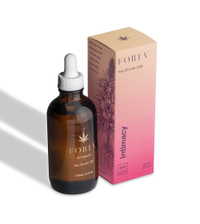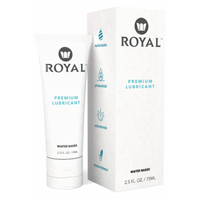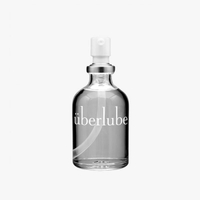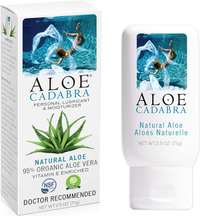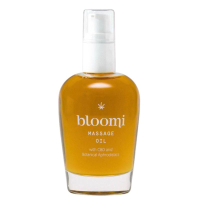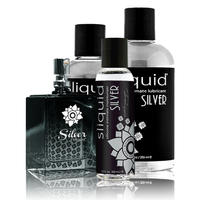Is coconut oil good for lube? All your lube questions answered
Is lube safe? Is coconut oil good for lube? And does it expire? Experts reveal everything you’ve ever wanted to know about lube
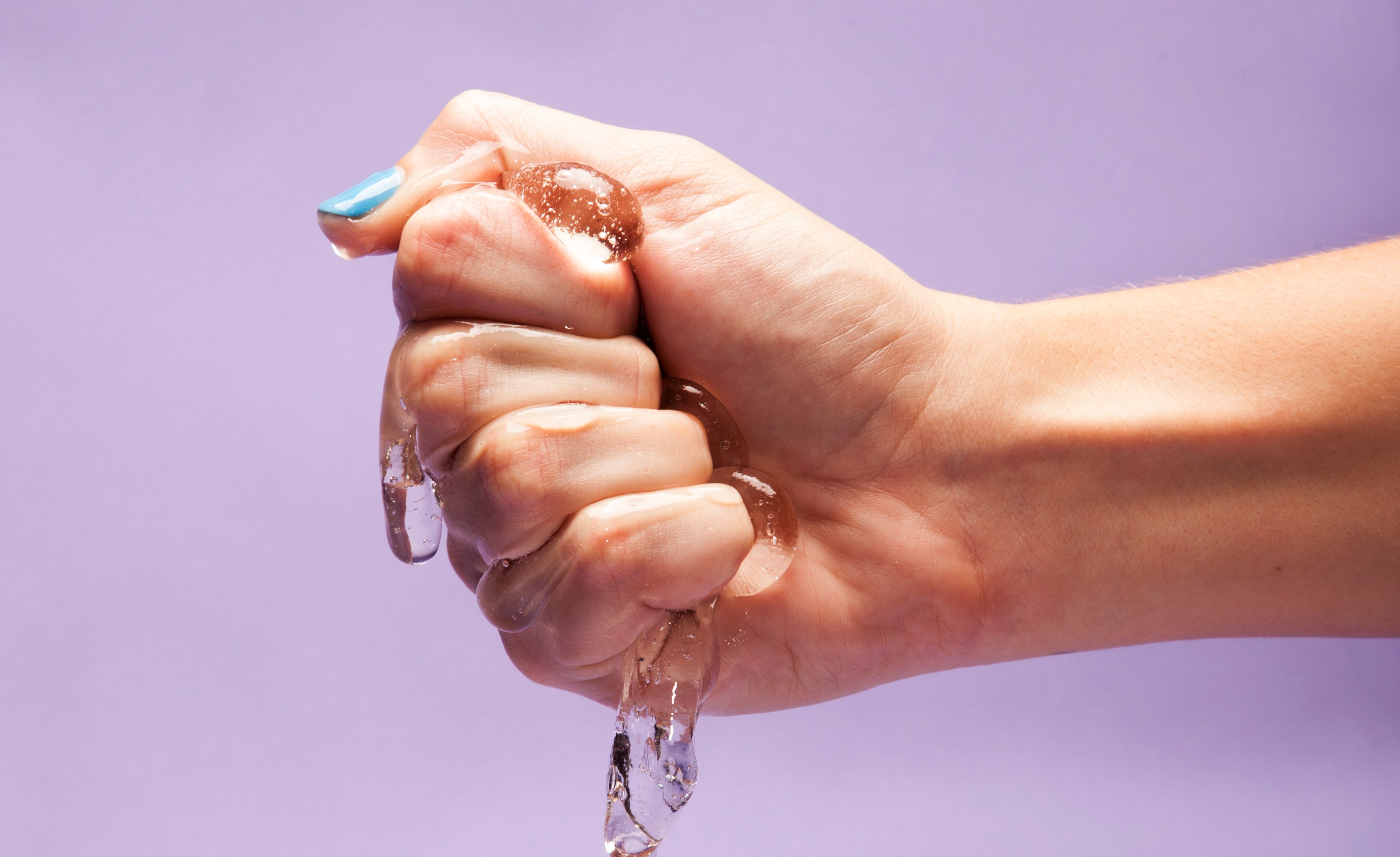

When it’s time to get in the erogenous zone—whether you’re partnered or going solo—the first thing on your mind might not be lube. But it should be.
According to sexual health experts, long-overlooked personal lubricant is your best bet for optimum pleasure with the best app-controlled vibrators, during slow-paced tantric sex, and everything in between. In fact, it can be a tool for how to reset your sex life and can help more people orgasm during sex.
“You should always have a bottle of lube in your bedside drawer,” says Caitlin V Neal, a sexual health coach and sexologist. “Using it can make your experience that much more pleasurable, safe, and comfortable. And when sex feels really good, you’re more inclined to work at it.”
Here’s everything you need to know about lube before getting frisky...
- Hands-free vibrators and sex toys: a lazy girl’s guide to orgasm
- TikTokers are using lube as base makeup—here’s what the experts have to say
- Types of vibrators: everything to know about the buzzy sex toys
Is coconut oil good for lube?
The short answer to “Is coconut oil good for lube?” is yes. But, like anything else you would ingest or apply topically, allergies are the most important to keep in mind. Be sure that both you and your partner are able to tolerate any new ingredients you’re introducing to the bedroom.
“Coconut oil can feel luxurious and moisturizing,” Neal says. “It’s tolerated best with anal sex.”
While she says that you can also try olive and vitamin E oils, they can alter the delicate pH balance of the vagina and even cause yeast infections, so keep them away from that area at all costs. Natural oils like these can also be harder to clean up afterward, so you’ve been warned.
Is it normal to use lube every time?
Sure is! Lube is integral to any sensual scenario. “That’s the most harmful myth,” Neal says. “There is absolutely nothing wrong with a body or vagina that doesn’t get lubricated naturally.”
Pure enjoyment aside, there are a number of reasons why you might want to lube up, including hormonal changes and aging, health challenges, or even medication side effects. An Indiana University study found that 65% of women have used lubricant to make sex more comfortable, more pleasurable or both.
Whether you’re flying solo or alongside a lover to the big O, Neal stresses that the slippery stuff should always be your first tool. “Lubrication of the anus and vagina are absolutely necessary,” she says. “Plus, it helps transfer heat and sensation when added to condoms and toys.”
A good personal lube can also be used without any erotics. “Sometimes I use it as a moisturizer for my vulva if it gets dry or irritated after wearing tight shorts or hiking,” Neal says. “It can help condition that delicate skin.”
Is lube safe to use?
Yes, but unfortunately, not all lubes are equal. Pay close attention to the ingredient list before using a new personal lubricant, as some may contain irritating or reaction-causing chemicals—especially if you have sensitive skin or any allergies.
In general, Neal advises that you avoid petroleum jelly, the microbicide nonoxynol-9, and propylene glycol, which are known for trapping and leading to bacterial overgrowth, and causing irritation and sometimes even contact dermatitis.
But the right lube can actually make sex safer. Abrasions and tiny tears of the delicate skin down under can lead to infections and sexually transmitted diseases, so smoothing things out with lubrication can cut your risk dramatically. Plus, it prevents condom breakage. Just be sure you’re using the proper lube for the job.
What kind of lube should I use?
1. Water-based lube
Water-based lube is the most friendly of them all. This means it’s body-safe, won’t stain your sheets, and you can use it with any type of condom or toy (silicone, glass, metal).
“If you’re only going to buy one lube, I recommend a high-quality water-based lube,” Neal says. “They won’t disrupt the function of your condom, and they’re great for both vaginal or anal sex.”
The downside is that water-based lubes can dry out pretty quickly, especially if they’re made with natural ingredients. “They definitely need to be reapplied more often,” Neal says. “They can also leave a residue on the body that can get sticky or unpleasant once it dries.”
While it’s not meant to be consumed, says Poison Control, water-based lube is safe to swallow in small amounts. It’s important to note that while generally safe, many water-based personal lubricants on the market also contain preservatives and antimicrobials (methylparaben) to prevent bacterial growth and spoiling, and a humectant to prevent evaporation (glycerin, propylene glycol) in addition to thickeners like cellulose.
2. Silicone-based lube
Silicone-based lube is safe when used with latex condoms, but not for silicone toys (which can create surface microtears and breed bacteria and viruses). If you are using it, stick to glass and metal, which are completely non-porous, and won’t be affected by this slick stuff.
“Silicone lube reduces friction like none other and has massive staying power,” Neal says. “Most are super smooth to the touch and don’t need to be reapplied as frequently.”
This viscosity makes silicone-based lube a great choice for anal sex and shower sex. “When you drop silicone lube onto the body, it stays put and does its job,” Neal says.
Silicone lubricants are most commonly applied to latex condoms during manufacturing, according to the World Health Organization. Some runners even use them as an anti-chafing agent on their thighs and chests, effectively reducing friction without getting tacky or a strange feeling on their skin.
3. Oil-based lube
Oil-based lubes should be used with caution. They cause condom breakage, which increases the risk of unplanned pregnancy and transmission of sexually transmitted infections. Otherwise, oils are gentle on the body, but should not be inserted vaginally.
“They tend to be tolerated well by most bodies,” Neal says. “But they’ll stain your sheets and cannot be naturally cleaned out by the vagina.” She suggests using oil-based lubricant during oral and anal sex only, and to try a gentle natural option such as coconut oil first (more on "Is coconut oil good for lube?" later).
Some oil-based lubes on the market contain CBD, which Neal stresses should be used to ease pain and increase pleasure and stimulation, but never to mask pain.
According to Serkalem Mekonnen, RN and certified specialist in poison information, the Food and Drug Administration does not regulate personal lubricants in the same way as medications, so rigorous human studies are not available. Always do your research and patch test before trying out a new lube!
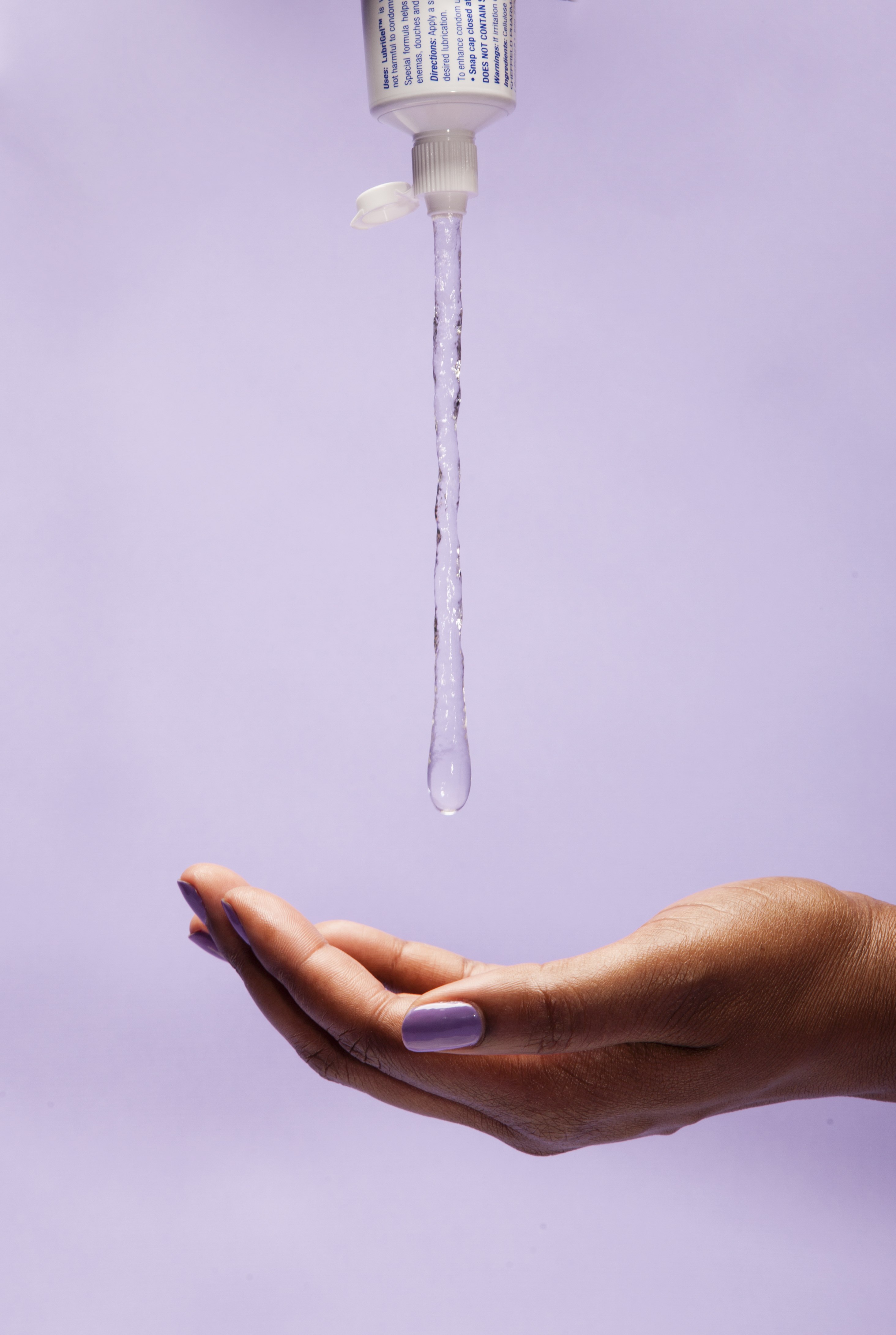
Flavored lube—yay or nay?
In general, it’s best to keep flavors out of the vagina and vulva, which are extremely sensitive. The risk for a reaction is just too high. “Flavored lubes are best suited for oral sex and anal sex, which is really where they can shine,” Neal says.
What about tingling lube?
For the most part, ingredients that promise extra sensations are likely to cause irritation, too. Everybody is different, which is why you’ll need to do some of your own research. Popular brands often include menthol and capsaicin to create a tingling effect, while benzocaine, a topical anesthetic, provides a numb feeling.
“Some of these chemicals can be perfectly safe, and others are questionable,” Neal says. “After all, even essential oils like cinnamon can still irritate you.” The bottom line is to patch test. Neal suggests sampling the lube in question on a different part of your skin, then waiting 24 hours before trying a small amount on your vulva or anus.
Does lube expire and how can you tell?
Yes! Lube most certainly expires after a certain point, but it depends on the type. Expiration dates are not necessarily printed on every bottle, however, personal lubricant definitely degrades over time.
Depending on the ingredients, whether it includes preservatives, and how it’s stored, your lubricant could essentially “go bad” before you’ve finished it off. Neal recommends checking for changes in consistency, color, and smell.
Natural and “clean” options are the most susceptible. “We have a plethora of natural lubes on the market with shorter lists of ingredients and no preservatives,” Neal says. “But they’re not as shelf-stable, they won’t last as long, and they may cost more. You have to be willing to throw them out and repurchase them more often.”
If all you’ve got is a year-old bottle of lube, Neal says it’s better than nothing. “As much as we wish we had clear guidance, you have to weigh and mitigate risk,” she says. “Having anal sex without lube? That’s risky behavior. Using that year-old lubricant is less risky.”
Can lube cause yeast infections?
Yeast infections can be triggered by even the slightest changes to the chemical balance in the vulva, depending on how prone you are. A healthy vaginal pH falls somewhere between 3.5 and 4.5, and if the pH of your lube does not match this, it could disturb the healthy flora of your nethers and cause a yeast infection.
Be sure to check all of the ingredients, and that you’re buying from a credible source. The biggest culprit is most often glycerin, which can lead to inflammation and yeast infections, according to the International Society for Sexual Medicine.
“Any quality lube manufacturer worth their salt should either actively provide or be able to provide detailed information such as the pH,” Neal says. “If a company isn’t willing to do this, I would not use their product.”
Can lube cause BV?
Similar to yeast infections, bacterial vaginosis (BV) can be caused by glycerin and a handful of other chemicals that create irritation or changes in pH. Medically, BV is treated like an STI, which means you could be getting reinfected by your partner if the issue persists after switching what you use to grease up.
To prevent any infections, Neal suggests rinsing off after any play. Use a clean washcloth, warm water and no soap. Use the bathroom immediately after sex (it can also help to do so before having sex).
Which lube brands can I trust?
Because we’re talking about the most delicate skin on your body, this is an important decision. Look for reputable retailers with transparent ingredient lists. “It’s worthwhile to invest in anything that’s going to come near your genitals or anus,” Neal says. “Lube should be a luxurious experience.”
That said, she stresses that not every ingredient in a high-quality lubricant will be easy to say. Some may sound like organic chemistry terms from college, but that doesn’t make them bad, wrong, or evil.
“I believe in referring to science when it comes to personal care products,” Neal says. “If you’re questioning an ingredient, check it with the Environmental Working Group— it’s the best source to help you make the decision on what will be best for you.”
Here are some of Neal’s favorite lube brands:
Foria Intimacy Sex Oil with CBD | $44
Royal Organic Water Based Lubricant | $13.99
Überlube 50 ml Bottle | $18
Aloe Cadabra Natural Personal Lube | $10.95
Bloomi Massage Oil | $64
Sliquid Naturals Silver | $14–$33
Rheanna is a multimedia journalist whose culinary, travel, and wellness work has appeared in Esquire, Cosmopolitan, Us Weekly, Eating Well, Brides, and more. She was previously the resident bar critic and features writer at Time Out New York, and the news and video editor for Delish. She has also helped produce documentaries. Outside the office, you can find her shooting 35mm film and adventuring with her rescue mutt, Brody.
